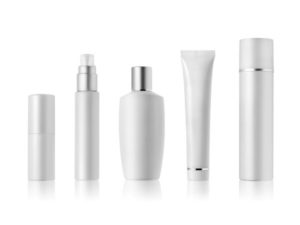Cosmetics Companies Facing New Regulatory Oversight
How cosmetic companies can establish a quality strategy that prepares you for increased regulatory oversight.
 The United States Senate and House of Representatives are both working on new regulations that would significantly impact the cosmetics industry. There is a lot of uncertainty regarding the FDA’s potential expansion which introduces new risk to the cosmetic category, particularly for smaller players.
The United States Senate and House of Representatives are both working on new regulations that would significantly impact the cosmetics industry. There is a lot of uncertainty regarding the FDA’s potential expansion which introduces new risk to the cosmetic category, particularly for smaller players.
Pressures to increase product quality continue to come from many areas, including regulators, retailers, and consumers. While some of the cosmetic industry’s largest companies have made strides in bolstering their Good Manufacturing Practices (GMPs), new market entrants and smaller beauty companies may face significant challenges by the proposed Personal Care Products Safety Act and the Cosmetic Modernization Amendments of 2017. Smaller, boutique beauty companies have not made the same investments in compliance and quality processes and technology.
What you need to know:
In both the 114th and 115th Congresses, new bills were proposed in both the Senate and the House, respectively, that would amend the Federal Food, Drug, and Cosmetic Act with the purpose of making the cosmetics industry safer for consumers.
Senate: Personal Care Products Safety Act
The Personal Care Products Safety Act, sponsored by Senator Dianne Feinstein (D-CA) and co-sponsored by Senator Susan Collins (R-ME), would require cosmetics companies to register their facilities with the FDA and to submit to the FDA cosmetic ingredient statements. If the FDA determines that a cosmetic, or other cosmetics from the same facility, has a reasonable probability of causing serious adverse health consequences, it may prohibit the cosmetic’s distribution by suspending the cosmetic ingredient statement. In addition, the FDA must review the safety of at least five cosmetic ingredients each year, and it may establish conditions for safe use of an ingredient, including a limit on the amount of the ingredient or a requirement for a warning label. The FDA would also develop and implement cosmetic manufacturing standards that are consistent with existing national and international standards, be allowed to inspect a company’s cosmetic safety records, recall a cosmetic that is likely to cause serious adverse health consequences, and encourage cosmetic safety testing practices that minimize the use of animals.
House: Cosmetic Modernization Amendments of 2017
The Cosmetic Modernization Amendments of 2017, sponsored by Representative Pete Sessions (R-TX), would require cosmetic companies to register manufacturing establishments, submit to the FDA their cosmetic ingredients, and allow the FDA to deem what ingredients are unsafe for cosmetic use. The Act would require cosmetic manufacturers, packers and distributors to report to the FDA any serious and unexpected adverse events caused by a cosmetic. The FDA would have the authority to establish principles and standards for GMPs for cosmetics and prevent the sale of cosmetics if it presents significant risk of serious adverse health consequences if it does not follow GMPs. In addition, cosmetics may only be imported from registered establishments that have submitted a cosmetic and ingredient statement.
Impacts to Cosmetics Companies
Both bills would require cosmetics manufacturers to register their products and ingredients with the FDA and require compliance with GMPs. The Senate bill goes further in that it would give the FDA mandatory recall authority. The Senate bill is supported by many large cosmetics companies including Revlon, Estée Lauder, Johnson & Johnson, and the Personal Care Products Council which represents 600 of the best-known cosmetics companies. It also has a degree of bipartisan support. While the chances of this bill being enacted are unclear, its re-introduction is confirmation that interest among consumers to further formalize regulations has not diminished.
How Cosmetics Companies Can Prepare
Deferring investments around quality until new regulations become more clear carries risks. Scrambling to meet statutory deadlines often leads to inflated costs to organizational programs, to unnecessarily complex change management, and to much steeper learning curves for your people.
There are proven methodologies that leading companies have used for years to strengthen their organization’s quality mindset. Consider the following actions:
- Build a regulatory compliance strategy now, regardless of your organization’s size, to protect yourself from regulatory uncertainty;
- If you have a regulatory compliance strategy, seek new ways to reveal blind spots in your current practices that might expose your brands and reputation to unexpected scrutiny;
- Before expanding into new markets, fully assess the regulatory environments and invest in aligning your R&D, marketing, and manufacturing practices to meet regulatory standards;
- If your organization’s growth is driven primarily through acquisition, invest in the due diligence necessary to assess the compatibility of both organizations’ regulatory processes and tools.
If your organization is the type of company that looks for opportunity in process and quality excellence, you should start now to embrace these proposed quality enhancements. By moving forward in your planning, you can signal to your consumers that you are leading the industry in delivering high product quality.
Be sure to subscribe to our insights for more of our perspective on the latest in the health & beauty industry and join the conversation on LinkedIn, Facebook, or Twitter.



